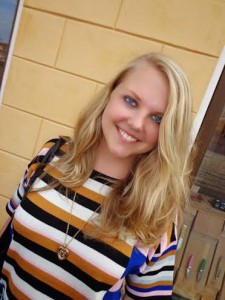You might have heard of them quite often in our Network. The Liaison Officers are the contact people of AEGEE-Europe towards different institutions and organizations. However, you might be wondering: who are they and which are the organizations they are dealing with? The Liaison Officers are introducing themselves and their work in the following article.
The Liaison Officers towards the United Nations
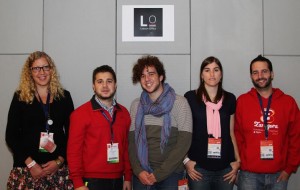 The UN is interesting for AEGEE, because they have a lot of initiatives related to youth (participation). Very often the UN is asking NGO’s for their opinion on youth issues or offering opportunities for youth participation that can be interesting for our members. The purposes of the United Nations, as set forth in the Charter, are to maintain international peace and security; to develop friendly relations among nations based on respect for the principle of equal rights and self-determination of people; to cooperate in solving international economic, social, cultural and humanitarian problems and in promoting respect for human rights and fundamental freedoms and to be a centre for harmonizing the actions of nations in attaining these ends. The Charter established six principal organs of the United Nations, which are: General Assembly, Security Council, Economic and Social Council ECOSOC, Trusteeship Council, International Court of Justice and Secretariat. The United Nations family, however, is much larger, encompassing fifteen agencies and several programmes and bodies.
The UN is interesting for AEGEE, because they have a lot of initiatives related to youth (participation). Very often the UN is asking NGO’s for their opinion on youth issues or offering opportunities for youth participation that can be interesting for our members. The purposes of the United Nations, as set forth in the Charter, are to maintain international peace and security; to develop friendly relations among nations based on respect for the principle of equal rights and self-determination of people; to cooperate in solving international economic, social, cultural and humanitarian problems and in promoting respect for human rights and fundamental freedoms and to be a centre for harmonizing the actions of nations in attaining these ends. The Charter established six principal organs of the United Nations, which are: General Assembly, Security Council, Economic and Social Council ECOSOC, Trusteeship Council, International Court of Justice and Secretariat. The United Nations family, however, is much larger, encompassing fifteen agencies and several programmes and bodies.
The Liaison Officers Team of AEGEE-Europe towards the UN is working with the following UN bodies:
- ECOSOC, UN Youth Delegates Programme, Secretary General’s Envoy on Youth: Alin-Florin Calin (alin-florin.calin@aegee.org)
- UNEP, UNESCO, UN Education First: Andrew Bartolo: (andrew.bartolo@aegee.org)
- UN HABITAT, UN Volunteers Programme, UN WOMEN: Laia Garcia (laia.garcia.montufo@aegee.org)
- UNDP, UN and Civil Society, UNDEF: Álvaro Espinosa (alvaro.espinosa@aegee.org)
- WHO, UNAIDS, UNFPA: Sygrit Andringa (sygrit.andringa@aegee.org).
If you want to know more about this team, read this article published in The AEGEEan, where part of the team was introduced in detail.
Fenia Megremi – Liaison Officer towards the OECD
 My name is Fenia Megremi, I’m studying International and European Relations and I’m currently a member of AEGEE-Paris. Recently I became Liaison Officer towards the OECD, a significant partner organization of AEGEE.
My name is Fenia Megremi, I’m studying International and European Relations and I’m currently a member of AEGEE-Paris. Recently I became Liaison Officer towards the OECD, a significant partner organization of AEGEE.
What is the OECD?
Its acronym stands for the Organization for the Economic Co-operation and Development. It brings together 34 countries with the aim of developing better policies for better lives. In fact, in the OECD, the governments co-operate, share experiences and seek solutions to common problems that affect the lives of ordinary people around the world directly.
Bram Houterman – Liaison Officer towards the World Bank
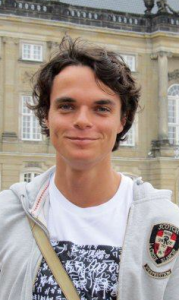 My name is Bram Houterman, from AEGEE-Amsterdam. I am now finishing my studies in International Economics and Political Science in Amsterdam. People who wrote a thesis already know what a delightful process I am facing at the moment. I have served in several positions within AEGEE and I feel honoured to be selected as Liaison Officer towards the World Bank.
My name is Bram Houterman, from AEGEE-Amsterdam. I am now finishing my studies in International Economics and Political Science in Amsterdam. People who wrote a thesis already know what a delightful process I am facing at the moment. I have served in several positions within AEGEE and I feel honoured to be selected as Liaison Officer towards the World Bank.
I think the World Bank (WB) could be of key value for our network. The core operation of the Bank is to provide loans to less developed parts of the world with the goal of reducing poverty. The loans come with a lot of conditionality, therefore the Bank enables and stimulates transition in many areas of the society. Lending also takes place in Europe as the Bank provides many loans in Eastern Europe.
For students from over the whole continent the Bank may be interesting because of its large database and interesting studies that are conducted. The Bank also organizes many events related to youth and participation, which may be very relevant for our members. An example is the annual Global Youth Summit in October.
I will keep you updated on interesting events that are organized, but also on other topics such as essay competitions and interesting research. In case you want to have more information about this institution (or about other international financial institutions such as IMF, EBRD, EIB), please do not hesitate to contact me (bram.houterman@aegee.org).
Marko Grdosic – Liaison Officer towards the European Youth Forum
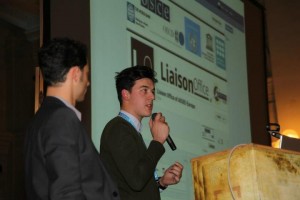 I’m Marko from AEGEE-Zagreb and this will be my second mandate as the Liaison Officer towards the European Youth Forum. My interest in the organisation started even before my year in the Comite Directeur, and during that period the work done and connections developed gave a good background to further develop the cooperation between AEGEE and YFJ.
I’m Marko from AEGEE-Zagreb and this will be my second mandate as the Liaison Officer towards the European Youth Forum. My interest in the organisation started even before my year in the Comite Directeur, and during that period the work done and connections developed gave a good background to further develop the cooperation between AEGEE and YFJ.
The European Youth Forum (YFJ) is the platform of youth organisations in Europe. Representing 99 youth organisations, both National Youth Councils and International Non-Governmental Youth Organisations, we believe youth organisations are the tool through which we empower, encourage, involve, represent, reach out and support young people. The Youth Forum brings together tens of millions of young people from all over Europe, organised in order to represent their common interests.
Ermanno Napolitano – Liaison Officer towards the OSCE
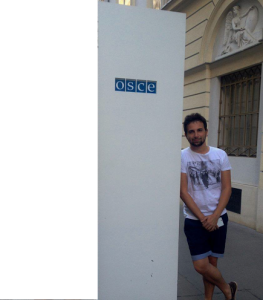 I’m the new Liaison Officer towards OSCE (Organisation for Security and Co-operation in Europe). I have covered many positions in AEGEE-Europe, such as President of the Juridical Commission and Mediation Commissioner, but this new position gives me a different experience, because my task is also to build and mantain external relation with this important organization.
I’m the new Liaison Officer towards OSCE (Organisation for Security and Co-operation in Europe). I have covered many positions in AEGEE-Europe, such as President of the Juridical Commission and Mediation Commissioner, but this new position gives me a different experience, because my task is also to build and mantain external relation with this important organization.
Do you know what OSCE is? Here is a small introduction:
OSCE has a comprehensive approach to security that encompasses political-military, economic, environmental and human aspects. It therefore addresses a wide range of security-related concerns, including arms control, confidence- and security-building measures, human rights, national minorities, democratization, policing strategies, counter-terrorism and economic and environmental activities.
All 57 participating states enjoy an equal status, and decisions are taken by consensus on a politically, but not legally binding basis.
Security touches on many aspects of the way we live and are governed. The OSCE’s comprehensive view of security covers three “dimensions”: the political-military; the economic and environmental; and the human dimension.
The OSCE’s activities cover all three of these areas, from “hard” security issues such as conflict prevention to fostering economic development, ensuring the sustainable use of natural resources and promoting the full respect of human rights and fundamental freedoms.
Here is the complete list of what OSCE covers: arms control, border managment, combatting human trafficing, combatting terrorism, conflict prevention and resolution, economic activities, education, elections, environmental activities, gender equality, good governance, human rights, media freedom and development, military reform and cooperation, minority rights, policing, roma and sinti, rule of law, tolerance and non-discrimination.
Why would OSCE be interesting for a student? As you can see OSCE covers an impressive number of thematics, there are a lot of opportunities to develop new projects and ask OSCE support, or to participate in OSCE projects and conferences.
Furthermore this year the Human Dimention Implementation Meeting (HDMI) will be organized again, which you can read about in this article published by The AEGEEan.
Whoever is interested to participate at HDIM or in general to some project related to OSCE please don’t hesitate to contact me at ermanno.napolitano@gmail.com
Ante Sellis & Nina Gustafsson – Liaison Officers towards the Committee of Regions and the European Economic and Social Committee
This year, our Comité Directeur decided it was time to incorporate two other European organisations, namely the Committee of the Regions (CoR) and the European Economic and Social Committee (EESC), to the already very impressive record of organisation dealed with by the Liaison Officers-team of AEGEE-Europe. Since both of these organisations are official advisory bodies of the European Union and both increasingly touching upon subjects, which are relevant for all AEGEEans, it was obvious for the CD to appoint two Liaison Officers to these organisations.
The Committee of the Regions (CoR) is the EU’s Assembly of Regional and Local Representatives, giving a voice to the regions and cities across EU member states. The CoR is a political assembly counting 353 members from 28 member states who are regionally or locally elected representatives, for example mayors or municipal council members. The CoR is an advisory body of the EU and must be consulted by the European Commission, the Council of Ministers and the European Parliament throughout the EU decision-making process on issues that are relevant for cities and regions.
The 353 members sit in one or more of the six Commissions within the CoR, where they prepare opinions based on the European Commission’s legislative proposals and bring out the perspective of cities and regions on a certain issues. The Commission where AEGEE has most interest in is the Education, Culture, Youth and Research (EDUC) Commission, although it will also be of interest to follow the developments in other Commissions, for example in the fields of employment, equal opportunities, environment, citizenship and fundamental rights. If the CoR feels that a certain issue needs further action or should be paid attention to by the other EU institutions, it can also issue an own-initiative opinion. Another important task of the CoR is consultation with stakeholders across the EU, such as local and regional authorities, associations, non-profit organisations, and networks.
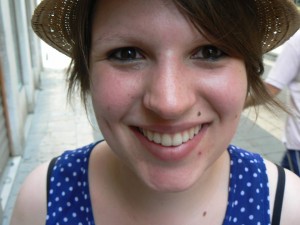 The European Economic and Social Committee (EESC) calls itself the bridge between Europe and organised civil society, which means that its basic task is to enable the civil society of Europe to be heard at the European level. Since this organisation is an official advisory body of the EU, the EESC must be consulted by the EU institutions on certain issues. In addition, like the CoR, it can also issue an opinion towards these institutions on its own initiative.
The European Economic and Social Committee (EESC) calls itself the bridge between Europe and organised civil society, which means that its basic task is to enable the civil society of Europe to be heard at the European level. Since this organisation is an official advisory body of the EU, the EESC must be consulted by the EU institutions on certain issues. In addition, like the CoR, it can also issue an opinion towards these institutions on its own initiative.
The EESC currently consists of 353 members, which are selected from various economic and social interests groups in the member states. Furthermore, the EESC has six different sections that cover more specified issues. The Employment, Social Affairs and Citizens (SOC)-section will be the section where AEGEE has most interest in as it is covering topics such as employment, education, health, gender equality, culture, and citizenship.
As said before, this year two Liaison Officers will work closely together to cover both organisations. These Liaison Officers-teamies are Nina Gustafsson and Ante Sellis. Nina is a 25-year-old recent graduate in Public Policy from the Maastricht Graduate School of Governance, and also holds a Bachelor’s degree in European Studies from Maastricht University. She was an active member of AEGEE-Maastricht between September 2007 and August 2012, and President of the XXIInd Board of AEGEE-Maastricht in 2010-2011. Currently, Nina is a member of AEGEE-Brussels and recently finished a traineeship at the Joint Directorate for Translation of the CoR & EESC in Brussels. Ante is a 23-year-old master student in International Relations and a member of AEGEE-Groningen since August 2009. After being active in several committees on local level, she was Secretary of the XXIVth board of AEGEE-Groningen in 2011-2012. This year she also became active on European level by being a proofreader for the ‘Key to Europe’.
Written by the Liaison Office of AEGEE-Europe


